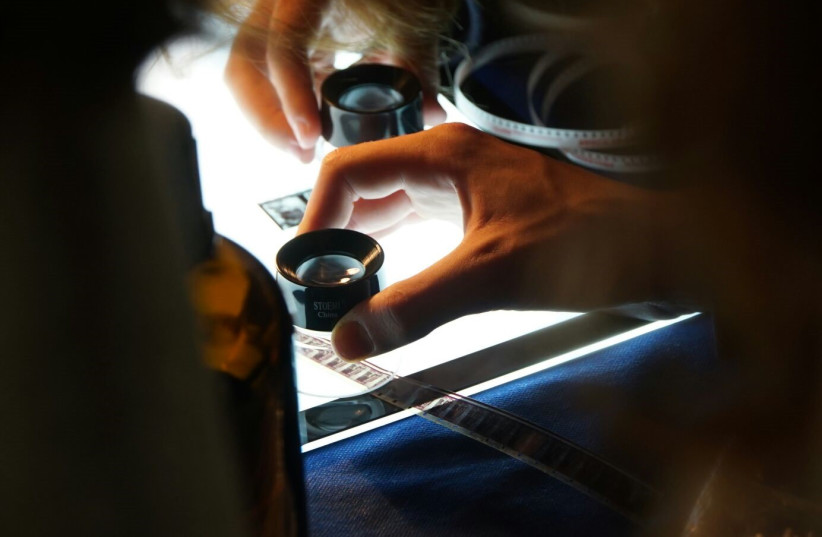Life itself may feel a bit on the dystopian side these days, but if we’ve learned anything, it’s that no one knows what will happen next, which makes it a perfect time for the Jerusalem Cinematheque’s Cinematic Dystopia series, which starts on July 1.
The series of films looks at very different futuristic movie dystopias, and it can be fun to see what they got wrong and scary to look at what they were right about. This series follows the premiere of Francis Ford Coppola’s Megalopolis at Cannes, a movie about an architect (Adam Driver) who wants to rebuild the world as a utopia following a disaster. Megalopolis hasn’t been released here yet, so it isn’t included, but Coppola dreamed of making this movie for decades, and the movies the cinematheque is showing include films that inspired him to create it.
Fritz Lang’s classic 1927 German Expressionist silent movie, Metropolis, opens this program. It portrays a future society sharply divided between the workers, who are the vast majority, and a small, carefree ruling class. The overlords create a robot double to replace a visionary young woman who preaches social equality.
Forget the remake, but see the 1966 version by Francois Truffaut of Fahrenheit 451, an adaptation of the novel by Ray Bradbury, which has deservedly become a classic. The title refers to the temperature at which books burn, and Oskar Werner plays a book-burner in a society in which all books are banned, who is lured into a subversive literary life when he meets a beautiful, mysterious woman played by Julie Christie, who also portrays his cold wife.
In the underground, each person memorizes a book so that there are no books around for the rulers to destroy, and it’s fun to think about which book you would like to become if you had to pick one.

The director’s cut of Ridley Scott’s 1982 Blade Runner is another futuristic/noir thriller that has become a classic. Harrison Ford stars as Deckard, a detective who hunts down replicants, humanoid robots that are passing as human, in Los Angeles in 2019. The earth is a miserable, filthy place with terrible weather and lots of noodle shops where Third-World workers go to escape the grime and rain, while the upper classes live in space colonies. Daryl Hannah plays a sexy, athletic robot clearly inspired by Fritz Lang’s Metropolis. Skip the reboot and see this film, filled with electrifying images and a thought-provoking story.
From George Lucas to Yorgos Lanthimos
George Lucas’s first feature film, THX 1138 (1971), is a science-fiction story without any of the cutesy critters of the Star Wars franchise. Robert Duvall plays the lead role in a movie about a 25th-century society where emotions are suppressed by drugs and he becomes a hunted man when he rebels.
Gattaca (1997) by Andrew Niccol is a dystopian noir about a world ruled by the genetically enhanced. When a genetically inferior man (Ethan Hawke), who dreams of taking part in the space program finds a way to fake having the DNA of a man (Jude Law) from the superior class who has become disabled, things become complicated. Uma Thurman plays a woman involved with both of them.
Richard Burton played Big Brother in an adaptation of George Orwell’s 1984, which was actually released that year. John Hurt played Winston Smith, an ordinary man who became aware of the regime’s mind control and tried to fight the Ministry of Truth. Michael Radford’s faithful adaptation wasn’t a huge hit – it was probably too bleak – but the past 40 years have been kind to it.
The 2015 The Lobster by Yorgos Lanthimos (Poor Things) depicts a world that is particularly grim for single people, who are brought to a resort where they must choose a partner, who also must agree to accept them. If they fail, they will be turned into an animal of their own choosing – Colin Farrell, in the lead, picks a lobster, which has a long lifespan – and then get hunted down. People who use dating apps may find a parable in this that is uncomfortably close to their reality.
Wall-E, Andrew Stanton’s 2008 feature-length cartoon from Pixar is about a robot on a deserted planet, who has learned about people from the artifacts that have ended up there and goes on a journey that may end up saving humanity. Thanks to AI and smartphones, the passive humans portrayed in this movie are closer to being a reality than ever.
Two recently released movies are included in the series. Furiosa: A Mad Max Saga, directed by George Miller and starring Anya Taylor-Joy, is about a kidnapped girl who must flee back home through a dystopian wasteland populated by bad guys. Civil War, directed by Alex Garland, tells the story of journalists who try to escape to Washington to interview the president after an attack has leveled New York.
If you’re looking for a not-too-depressing dystopia, I would recommend Fahrenheit 451 or Wall-E, as well as Blade Runner, because any future that includes a 40-ish Harrison Ford can’t really be all that terrible.
